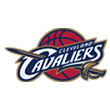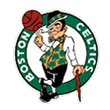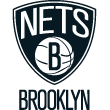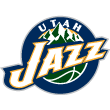Here's a breakdown of the latest trades in the NBA:
July 9: Cavaliers clear max cap space with three-team deal
Cavs get: Protected second-round pick from the Celtics and the rights to Ilkan Karaman, Christian Drejer and Edin Bavcic from the Nets
Nets get: Guard Jarrett Jack and forward Sergey Karasev from the Cavs
Celtics get: Center Tyler Zeller and a 2016 first-round pick from the Cavs, and guard Marcus Thornton from the Nets
 Cleveland: C
Cleveland: C
Really, the grade here is incomplete, because the only way to judge this trade is to know what LeBron James is thinking. With this move, the Cavaliers have cleared enough room under the salary cap to offer James the maximum possible salary if he decides to return to Cleveland. If the Cavaliers know that's going to happen, this trade gets an A-plus. If the league's best player is coming, you do whatever is necessary to make it happen.
If James re-signs in Miami or unexpectedly signs with a third team, however, Cleveland is left with a hefty bill for its pursuit. As much as the Cavaliers may be maintaining privately that they would have done a version of this deal without any James guarantees, it will be difficult for them to spend $21 million in cap space effectively on any other free agent, and the cost to get there from about $13 million pre-trade -- nearly enough to max out restricted free agents like Chandler Parsons -- was high.
The non-max version of this trade was surely something along the lines of swapping Jack for Thornton. But the Celtics would not likely have been involved, meaning the Cavaliers could have kept their 2016 protected first-round pick and Zeller, a useful bench piece on a team-friendly contract.
Suddenly, Cleveland is left with a skeletal roster -- just nine players under contract (not counting second-round pick Joe Harris and Scotty Hopson, whose contract is non-guaranteed), and a bench made up of Anthony Bennett, Matthew Dellavedova, Carrick Felix and Brendan Haywood. As a result, the Cavaliers would probably be better off spreading their money around rather than targeting any one player not named LeBron. Was this all worth it? Without knowing what James' representatives are telling Cleveland, it's basically impossible to know.
 Boston: A
Boston: A
The Celtics had a trade exception from last year's deal with the Nets set to expire on July 12, and they put it to use by swallowing the final year of Thornton's contract, with Zeller and the 2016 first-round pick as carrots. From Boston's standpoint, Thornton's salary is little inconvenience; the Celtics weren't likely to go under the cap this summer anyway, and in a best-case scenario, they might be able to get a second-round pick for Thornton in exchange for another expiring contract at the deadline.
Zeller is a nice piece for a Celtics team so lacking in true centers. He isn't exactly Tyson Chandler in the paint, but he offers more rim protection than either Kelly Olynyk or Jared Sullinger and could pair well with either of Boston's young big men. For $4.3 million over the next two years, that's useful.
The real gem, however, is adding another protected first-round pick to the pile accumulated in last year's deal with Brooklyn. If the Cavaliers get James, that might not be worth much. If they strike out, and are still a fringe playoff team in two seasons, the Celtics could get a mid first-round pick for their troubles, which would be excellent value.
 Brooklyn: B-plus
Brooklyn: B-plus
Negotiations between the Nets and Cleveland on a Thornton-Jack swap were first reported before the draft. It made sense to the extent that Brooklyn has need for a backup point guard -- or perhaps even one to play with Deron Williams -- after Shaun Livingston's departure as a free agent. Because Jack's 2016-17 salary is only $500,000 guaranteed, adding a longer contract doesn't really cut into the Nets' plan to have cap space available for Kevin Durant's foray into free agency in 2016, though it does mean a larger tax bill in 2015-16, when Thornton would have come off the books.
Adding Karasev to the deal makes it look a whole lot better. While the Russian wing couldn't get off the bench with the Cavaliers last season, he rated well by my WARP projections before the 2013 draft and won't turn 21 until just before opening night, so there's some upside here. For a team devoid of young talent, Karasev is a nice get.
The downside is the possibility that Jack might be done. He rated below replacement level during his one season in Cleveland and is at the stage of his career where that kind of decline might not be reversible. Of the 50 players most similar to Jack at the same age (30), per my SCHOENE projection system, 78 percent declined the following season. Because he was so much more effective before last season, Jack is still likely to play better than he did in 2013-14, but that still might leave him as a replacement-level player or worse during the next two seasons. In that case, the Nets are paying an awful lot for the kind of production they could have gotten from a free agent signed for the veteran's minimum.
The international prospects whose rights Brooklyn sent to Cleveland have little value. Bavcic -- traded for Jack a second time, as he was part of the deal that sent Jack to the Golden State Warriors -- and Drejer are both in their 30s. Karaman is just 24 but missed all of last season due to patellar tendinitis.
July 4: Raptors trade Novak to Jazz
Raptors get: Guard Diante Garrett
Jazz get: Forward Steve Novak and a future second-round pick
 Toronto Raptors: A-
Toronto Raptors: A-
It's not a holiday in Canada, so Raptors GM Masai Ujiri has been busy on the Fourth of July. After reportedly agreeing to terms with forward Patrick Patterson on a new three-year, $18 million deal, the Raptors gave themselves some more breathing room under the luxury tax by dealing Novak to Utah for Garrett, whose 2014-15 salary is non-guaranteed.
Assuming Garrett is waived, along with fellow non-guaranteed guards Dwight Buycks and Julyan Stone, Toronto will clear somewhere in the neighborhood of $11.5 million under the luxury tax, a figure that would grow to about $13 million if newly acquired Lucas Nogueira does not come to the NBA this season. That should be plenty for the Raptors to re-sign point guard Greivis Vasquez, a restricted free agent, and use their mid-level exception to add needed size on the wing.
Novak, who had his moments off the bench for the New York Knicks the previous two seasons, couldn't find a role in Toronto. He played just 540 minutes in 2013-14, and Patterson's return filled the Raptors' need for a stretch 4. Toronto won't miss Novak much, and the second-round pick is a relatively small price to pay to shed $7.2 million over the next two seasons.
 Utah Jazz: C
Utah Jazz: C
The Jazz have been in the market for a stretch four. Utah claimed Erik Murphy off waivers from the Chicago Bulls this past April, and a shooter would complement the skills of big men Derrick Favors and Enes Kanter. However, it's unclear whether Novak's game is complete enough to get him on the floor to use that shooting touch. A good team can cover for Novak's defensive weaknesses; that might not be possible in Utah.
Even if Novak just sits on the bench, the Jazz will get something out of this deal in the form of a second-round pick, and it's not like Utah had big plans for its cap space this summer. The move is certainly justifiable for the Jazz, just nothing that will move the needle in either direction.
